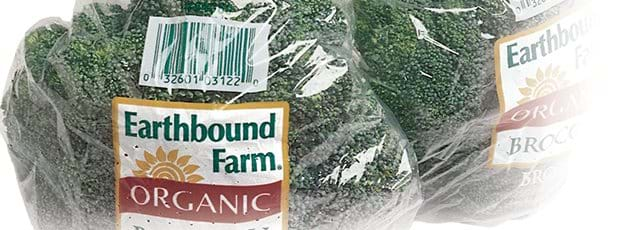Organic Price Premiums Remain High

Organic products often sell for higher prices than conventionally produced goods. The price premium results from higher production and distribution costs for organic food, as well as consumers' willingness to pay extra for organic food. As long as demand increases faster than supply and prices of conventionally produced food remain constant, organic food will continue to sell for higher prices. The price premiums and profitability earned by organic producers to date have contributed to growth in certified organic farmland and, ultimately, market expansion—organic food retail sales reached an estimated $10.3 billion in 2003, up from $3.5 billion in 1997 (retail sales estimated by the Nutrition Business Journal).
A recent study by ERS examined price premiums for organic broccoli, carrots, and mesclun (lettuce) mix. During 2000-04, the highest premiums (near 100 percent over conventional) were observed for broccoli and carrots, and premiums were higher at the wholesale level than at the farmgate level. Annual organic price premiums for mesclun mix at the wholesale level (farmgate prices are not available) ranged from 6 to 9 percent over the 5-year period. Price premiums for organic mesclun have always been much lower than for other commodities. Mesclun, first introduced as an organic crop in the 1990s, initially sold for high prices that attracted both organic and conventional producers to the market. As the supply of organic and conventional mesclun increased, the prices of both declined, although organic products maintained a small premium.
As farmers receive higher prices for their organic products, they increase production, and attract other farmers to the organic sector. At the same time, as the price differential between organically and conventionally grown products diminishes, more consumers are likely to purchase organic food. Relative changes of supply and demand will determine whether price premiums continue for organic farmers and businesses. If supply begins to grow faster than demand, price premiums will decline. Recent trends in price premiums for broccoli and carrots suggest that even though certified organic acreage is rising rapidly, demand appears to be growing fast enough so that farmers and wholesalers are maintaining a large organic premium for these products.
Price Premiums Hold on as U.S. Organic Produce Market Expands, by Lydia Oberholtzer, Carolyn Dimitri, and Catherine Greene, USDA, Economic Research Service, May 2005
Organic Prices, USDA, Economic Research Service, September 2019
Organic Agriculture, by Sharon Raszap Skorbiansky, USDA, Economic Research Service, January 2024


